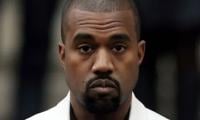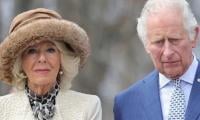Is President Trump prepared for President Xi?
President-elect and his possible cabinet have to prepare for China
The global power chess board is experiencing extraordinary changes. Old players are tumbling, and new ones are emerging. Once upon a time, US had the unchallenged and unparalleled power to define rules of global power chessboard.
Thus, right after presidential elections in US, the world started preparing for new president. There was usually a race to connect with the new possible administration of the President-elect.
It was considered a success to talk to president-elect. The lobbyists tried to exploit the opportunity up to maximum, and Washington became the lobbyists’ gala place. However, the paradigm started to shift in recent times. The world is not showing enthusiasm to connect with possible cabinet and president-elect, which was a common practice 20 years ago.
However, situation for China is entirely different. Now, the President-elect and his possible cabinet have to prepare for China. Whether someone likes it or not, China is becoming a new rule-setter, or at least a player of equal weight to US, to set rules of global power chess board. This is not an exaggerated assumption or rhetoric; it is based on facts and data.
China is fast becoming centre of global trade and economy. Countries and regions are eagerly signing free trade and economic partnerships with China. Regional Comprehensive Economic Partnership is one of the most prominent example in recent times.
The RCEP members account for 30pc of population and 30pc of global GDP ($29.7 trillion). It is considered largest trade bloc in history. On the other hand, China signed agreements with Arab countries, Gulf Cooperation Organisation, Latin American countries, African countries, etc. It is also strengthening cooperation at BRICS and SCO, among others.
Besides, China International Import Expo (CIIE) was launched to strengthen trade links with the world. CIIE has been designed to promote rule-based, win-win cooperation and create opportunities for the world.
Moreover, China has offered tariff-free entry into Chinese market to all the least developed countries. By doing so, China is on its way to becoming centre of global trade and ambit of global economy.
China is home to many global initiatives in the fields of economy, security and diplomacy, such as BRI, GDI, GSI and GCI.
First, China launched BRI to contribute to and satisfy economic and development needs of the world. Due to openness and inclusiveness in decision-making and implementation, it has become largest economic, trade, connectivity and investment program in human history, with 153 countries and 32 international organisations.
The Global Security Initiative (GSI) has been built on four pillars: common, comprehensive, coordinated and sustainable security. It is helping the world combat new security challenges and secure sustainable peace without compromising dignity and sovereignty of countries.
Second, Asian Infrastructure and Investment Bank was introduced to achieve goals of a people-centric financial system, which must not be exploitative. It has become second-largest global bank with 109 members after World Bank.
Third, China has accelerated its efforts to invest in global common goods, such as environment, free trade routes, poverty alleviation and sustainable food security. The Global Development Initiative (GDI), which was built on a vision of shared prosperity, is emerging as one of biggest common good provider initiatives.
Fourth, China has emerged as leader of Fourth Industrial Revolution by strengthening its innovation and technological development base. No one can afford or dare to ignore China.
Despite all propaganda and sanctions, many CEOs of leading tech companies visited China in 2023, including Bill Gates, co-founder of US tech giant Microsoft; Elon Musk, co-founder of electric vehicle front-runner Tesla; Intel CEO Pat Gelsinger, Tim Cook, CEO of Apple and Cristiano Amon, CEO of Qualcomm. They are all in a race to build and strengthen their relationship with China. Fifth, China is home to a huge population and, in economic terms, a huge consumer market.
President Xi has launched a drive to modernise Chinese economy, society and governance system. Modernisation is expected to initiate class shuffling, and almost 1,000 million people will change the class. It will create a trillion-dollar new economy. Thus, no country or bloc can ignore Chinese market, rather they will be in a race to build partnerships with China.
These initiatives and strengths have made China centre of economic activity, trade, technology and hope for sustainable peace. People are keen to watch China, its policies and refine their policies to benefit from the opportunities. Plenary sessions of Central Committee of Communist Party of China attract a wide audience and media coverage. The world watches it closely because, as the centre of global trade, technology and economy, decisions at the session will have implications for global economy, trade and development.
The world considers the session sets the tone for Chinese economy, society, and international economic and diplomatic engagements.
People also listen to and thoroughly analyse President Xi’s and other Chinese leaders’ speeches.
The importance of President Xi’s speech can be judged by its online viewership and traditional media coverage. For example, in 2021, President Xi’s speech at UN was the most viewed speech on social media and received worldwide coverage. This clearly indicates China’s importance has been enhanced, and the world considers President Xi’s speech a global tone-setter.
The question is whether President Trump understands new dynamics or is ready to deal with President Xi. A bird’s-eye view of proposed cabinet and other nominees shows he neither comprehended nor prepared for President Xi. The President-elect and his team still live in the past. They think US can do anything and dictate anything to anyone.
Unfortunately, most of his potential cabinet candidates are hoaxes and China bashers. They want to pick a trade and sanction war with China. They are exploring options to strengthen sanctions and CHIPS and Science Act because they believe these actions will assist American economy. Further, there are clear signs President Trump will revert back to his first-term anti-China policy. He believes his anti-China policy helped US.
The above-discussed facts and data indicate US come out of past and understand the world has changed. The US is no longer in a position of strength to dictate its terms. The world is looking to China for economic and trade linkages to fulfil its growth and development goals.
The President-elect and his team should try to comprehend new dynamics and realities. This will help US steer the relationship in right direction. Otherwise, the relationship may further deteriorate, which would be bad news for US, China, and the world. Moreover, US economic situation and rising debt do not allow it to engage in trade or sanction war, which will further deteriorate American economy, and inflation, inequality and poverty continue to rise.
-
 Meghan Markle’s Family Shares Important News Amid Estrangement
Meghan Markle’s Family Shares Important News Amid Estrangement -
 BAFTA, BBC, And Tourette’s Advocate John Davidson Issue Formal Statements For His Onstage Slur
BAFTA, BBC, And Tourette’s Advocate John Davidson Issue Formal Statements For His Onstage Slur -
 Kanye West's Malibu Beachfront Mansion Enters Controversy Again As Ex-employee Seeks $1M In Alleged Unpaid Wages
Kanye West's Malibu Beachfront Mansion Enters Controversy Again As Ex-employee Seeks $1M In Alleged Unpaid Wages -
 Tom Hanks To Lead Experimental Biopic About Distant Relative Abraham Lincoln
Tom Hanks To Lead Experimental Biopic About Distant Relative Abraham Lincoln -
 'CIA' Starring Tom Ellis Promises Fresh Take Beyond FBI Franchise
'CIA' Starring Tom Ellis Promises Fresh Take Beyond FBI Franchise -
 Congressman Tony Gonzales Faces Resignation Calls Amid Investigation
Congressman Tony Gonzales Faces Resignation Calls Amid Investigation -
 Royal Family Not Allowed To Play THIS Fun Game: ‘It Gets Too Vicious’
Royal Family Not Allowed To Play THIS Fun Game: ‘It Gets Too Vicious’ -
 Heidi Klum Exposes Harsh Modeling Rule She Faced While Expecting
Heidi Klum Exposes Harsh Modeling Rule She Faced While Expecting -
 US Women’s Hockey Team Skips State Of The Union After Gold Medal Win
US Women’s Hockey Team Skips State Of The Union After Gold Medal Win -
 Toronto Weather Forecast: Snow Storm Advisory Lifted After Icy Conditions
Toronto Weather Forecast: Snow Storm Advisory Lifted After Icy Conditions -
 How ‘deafness’ In Andrew Scandal Has Changed Monarchy ‘forever’
How ‘deafness’ In Andrew Scandal Has Changed Monarchy ‘forever’ -
 Gisele Bundchen Drops Postpartum Workout Secret She Calls A 'game Changer'
Gisele Bundchen Drops Postpartum Workout Secret She Calls A 'game Changer' -
 1 In 5 Teens Exposed To Unwanted Sexual Content On Instagram, Report Finds
1 In 5 Teens Exposed To Unwanted Sexual Content On Instagram, Report Finds -
 US Judge Aileen Cannon Issues Permanent Order In Trump Documents Case
US Judge Aileen Cannon Issues Permanent Order In Trump Documents Case -
 King Charles, Royals Are Not ‘bright’ Enough To Live In Mansions
King Charles, Royals Are Not ‘bright’ Enough To Live In Mansions -
 'Final Throw Of The Dice': Paramount Submits Highest Bid Offer To Warner Bros. In Last Round
'Final Throw Of The Dice': Paramount Submits Highest Bid Offer To Warner Bros. In Last Round




